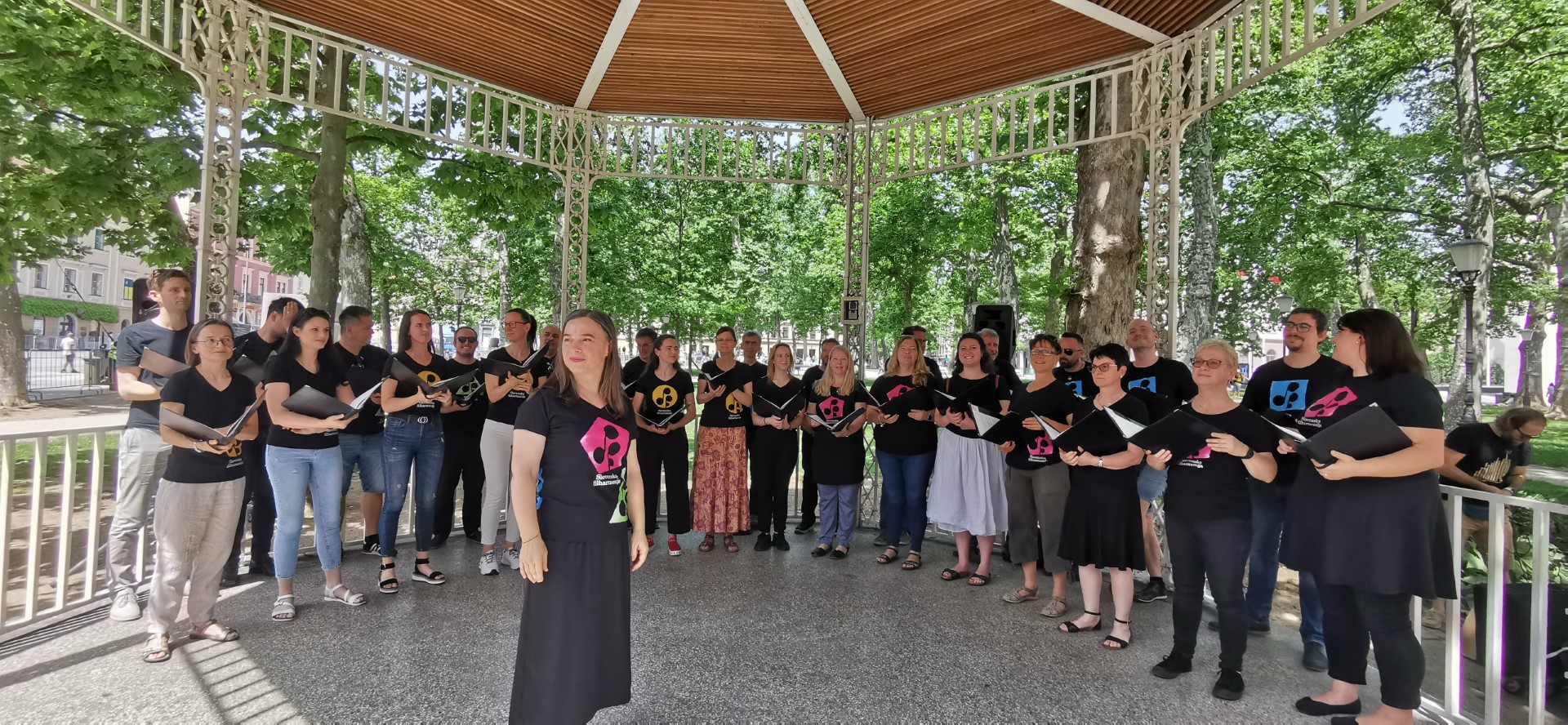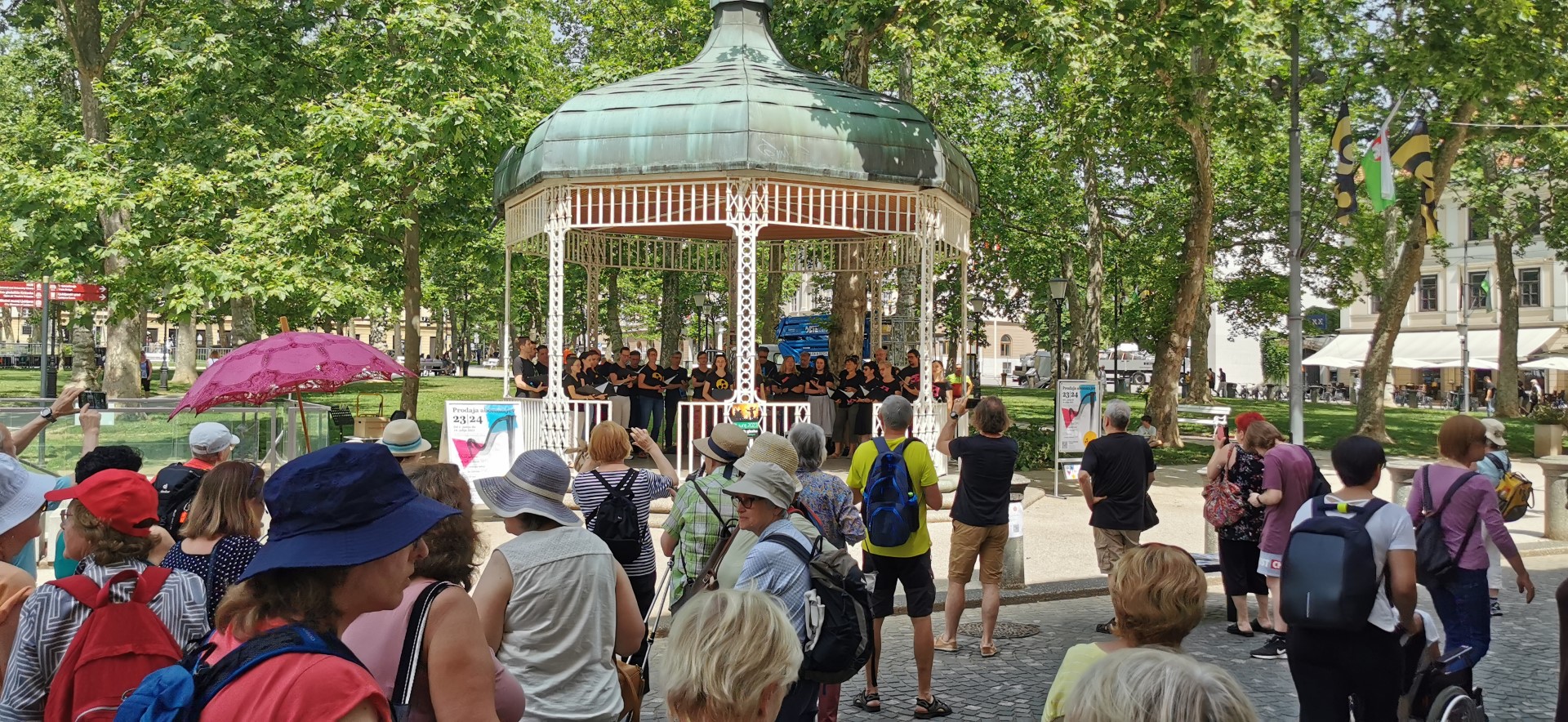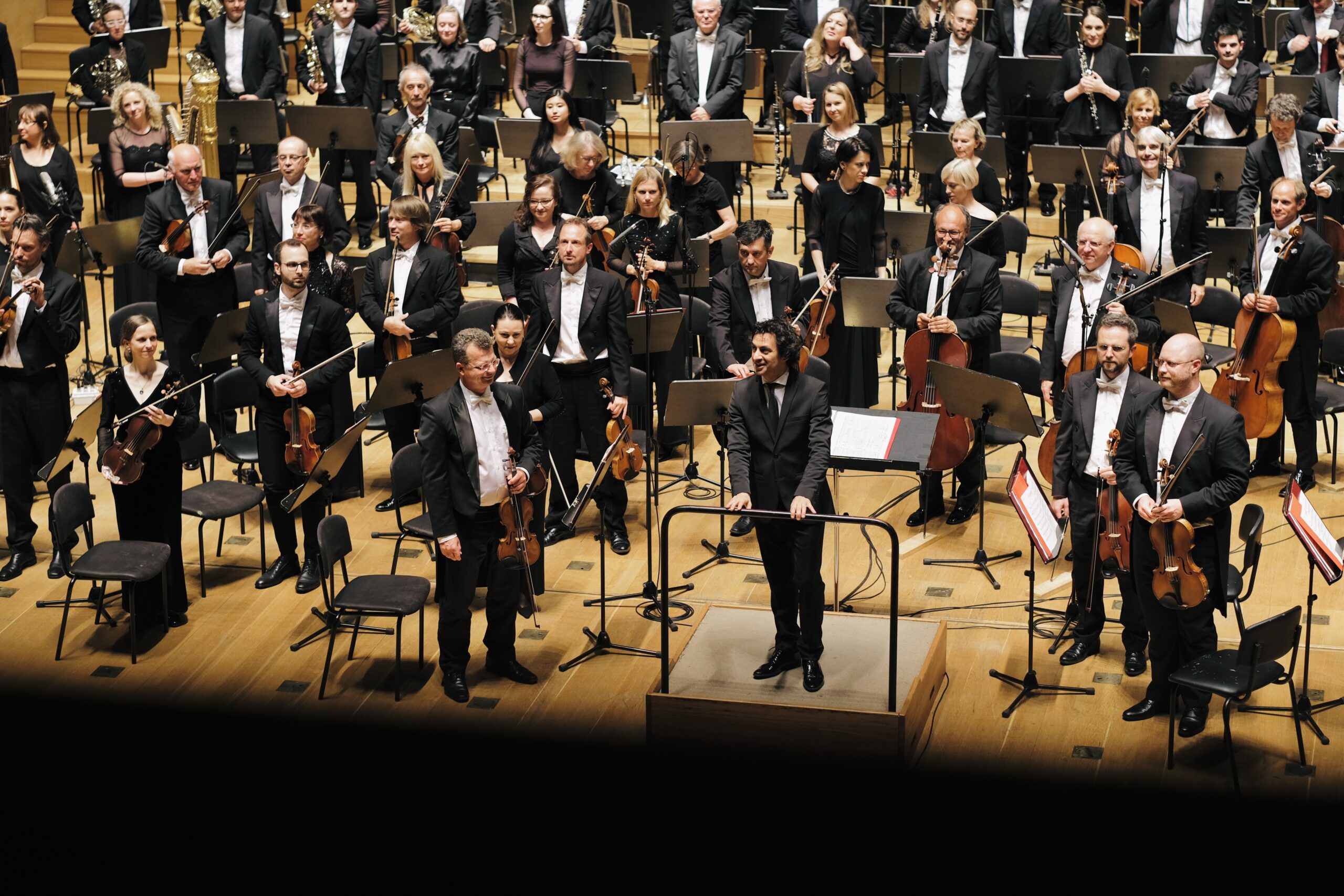Summer Is a Time for Music Too
I admit that astrology has always fascinated me. I’m not immune to the Sun and the Moon either, and I strongly believe that every “why” has its own “because”, even if we can’t see or understand it at the present moment. Last week we witnessed the summer solstice, the longest day of the year. The original meaning of this day has been rooted in history since ancient civilizations, but today it is often forgotten. The solstice also marks the beginning of summer, which, after an endlessly lazy and capricious spring, suddenly makes a strong impression with all its beauty and heat. But 21 June is also World Music Day, something that is not celebrated extensively in Slovenia, although I dare say that this too will change. It is a wonderful opportunity to celebrate music in all its beauty, wherever we want. This was precisely the philosophy the very first time the World Music Day was celebrated. One of the initiators of this celebration, the then French Minister of Culture, Maurice Fleuret, who was also a composer, journalist and music critic, got the tradition underway with a simple observation: “Music everywhere, concerts nowhere.”

The Slovenian Philharmonic Choir contributes to World Music Day with a one-hour concert in the pavilion in Congress Square. This year, the concert was particularly successful, as the choir impressed a large audience with an attractive programme under the baton of Jerica Bukovec. It was a celebration of music in the truest sense of the word. The fact is that music accompanies us everywhere: in the kitchen when we’re preparing lunch, at the sea when we’re lying on a towel, in the living room when we finally have time to enjoy our favourite artist, or in the concert hall when we attend a live performance. The ability of notes to get under our skin is amazing. In an organic way, in squares, in common areas, in schools, in museums, on the streets and even in airports, music is the protagonist of a universally accessible powerful message, an invitation to travel, a means of communication between all people and cultures.

For millennia, the summer solstice was considered a special day and attributed symbolic meanings, giving rise to a multitude of pagan and religious rituals related to the cycles of agriculture and nature. Metaphorically, it is the day that the sun celebrates its victory over darkness, as the interval between sunrise and sunset can exceed sixteen hours. According to astrologers, this is the most favourable moment to address the deepest dimensions of oneself and re-establish contact with nature. In antiquity, the solstice was celebrated as a moment of connection with the sun and the divine element. If we add to this the power of music, we quickly realise that summer is a time when we can really delve deeply into ourselves.

Music is a means, a universal language for participation in the positive drive to encounter different cultures and social contexts. This is exactly what happens at the Slovenian Philharmonic: different cultures, musicians, talents and artists meet. The people in the audience meet, too. Sometimes they are old acquaintances, and sometimes they are completely new and curious faces. Some of them are full of expectations, others already know what awaits them, and still others surrender to the flow of life and music, which becomes even more important in the summer months. Music enables us to lighten our load at least a little, to put our worries aside (because we always have too many of worries, many of which are really unnecessary) and enjoy what we have. Because we have a lot.
